Introduction
How To Keep Pigeons Off Porch: Pigeons are beautiful creatures, often admired for their graceful flight and soothing cooing sounds. However, when these winged creatures decide to make your porch their home, the charm can quickly wear thin. Pigeons reproduce can be a nuisance, leaving droppings everywhere, causing damage to property, and even posing health risks. If you find yourself facing a pigeon problem on your porch, you’re not alone, and there are effective ways to address the issue. In pigeons off your porch, offering practical solutions and tips to reclaim your outdoor space. Whether you have a cozy residential porch or a sprawling commercial property, the methods discussed here are adaptable and can be tailored to your specific needs.
Pigeons are highly adaptable birds and are known for their homing instincts, which can make them particularly challenging to deter. They are attracted to porch spaces for various reasons, including shelter, warmth, and easy access to food sources. As their numbers grow, so do the associated problems, such as the unsightly mess they leave behind and potential health concerns. The key to resolving a pigeon problem is to strike a balance between humane treatment of these birds and protecting your property. We will delve into a range of solutions, from non-lethal deterrents and barriers to attractants that can draw them away from your porch.
Whether you’re an animal lover looking for ways to peacefully coexist with pigeons or someone seeking to keep them at bay, this has you covered. Before implementing any pigeon prevention methods, it’s essential to understand the local regulations and ethical considerations surrounding pest control. Identifying the specific factors that attract pigeons to your porch will help you choose the most appropriate strategies. By taking a comprehensive and informed approach, you can enjoy a pigeon-free porch while respecting the natural world around you. So, let’s explore the various methods and tips that will help you achieve that perfect pigeon-free porch you’ve been longing for.
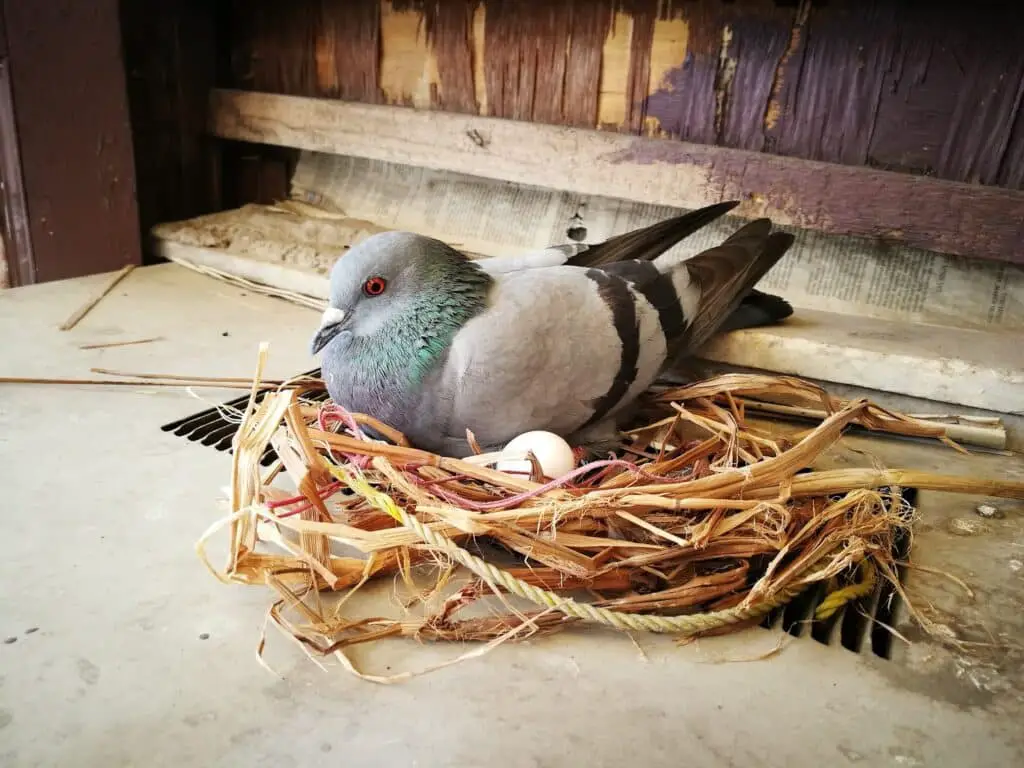
How do I permanently get rid of pigeons?
When getting rid of pigeons, practical traps and repellents are the best options to utilise to ensure the birds are repelled from your property. Falconry, anti-bird spikes, parallel wires, bird netting, bird gels, decoy kites, and lasers are all effective in ridding pigeons from your property.
Identify the Attractants: The first step in permanently getting rid of pigeons is to identify what’s drawing them to your property. Pigeons are typically attracted to food sources, shelter, and safe roosting spots. Eliminate or secure these attractions. Keep trash cans sealed, remove leftover pet food, and block off potential nesting sites.
Implement Physical Barriers: Installing physical barriers can be one of the most effective ways to deter pigeons. Consider using pigeon spikes, netting, or wire mesh to block off access to roosting areas and ledges. These barriers make it difficult for pigeons to land and nest.
Scare Tactics: Various scare tactics can make pigeons uncomfortable and drive them away. These include using reflective objects, such as aluminum foil strips, or predator decoys like plastic owls or hawks. Move these deterrents periodically to prevent pigeons from getting used to them.
Ultrasonic Devices: Ultrasonic devices emit high-frequency sounds that are unpleasant to pigeons but usually inaudible to humans. These devices can be effective in deterring pigeons without causing harm to them.
What smells do pigeons hate?
Pigeons dislike strong smells, like cinnamon and hot pepper. To deter pigeons from entering your garden, use cinnamon or peppermint essential oil or cayenne pepper mixed into a spray bottle of water. Spray the mixture anywhere you’ve noticed pigeon activity.
Citrus: Pigeons dislike the smell of citrus fruits, particularly lemons and oranges. You can place citrus peels or scatter citrus-scented essential oils around areas where pigeons gather. The strong citrus scent can make these areas less appealing to them.
Peppermint: Peppermint is another scent that pigeons find unpleasant. You can use peppermint essential oil or peppermint plants to deter pigeons. Place soaked cotton balls with peppermint oil or grow peppermint near your problem areas.
Cinnamon: The strong, spicy scent of cinnamon is disliked by pigeons. Sprinkle ground cinnamon or use cinnamon sticks around areas where pigeons roost or nest.
Vinegar: White vinegar is a versatile and effective pigeon repellent. Mix vinegar with water and spray it on surfaces or areas where pigeons congregate. The smell will deter them, and the acidity of the vinegar can help clean and disinfect as well.
Does vinegar stop pigeons?
Vinegar is natural and effective in repelling birds. You can spray pure vinegar on selected areas where you see nests. Apple cider vinegar is the most effective, but you can use any kind of vinegar if you don’t have this one.
Effectiveness: The effectiveness of using vinegar as a pigeon deterrent can vary. Some pigeons may be deterred by the smell, while others may be less affected or eventually get used to it. Factors like the concentration of vinegar used, the persistence of the pigeons, and the availability of alternative roosting or nesting sites play a role in determining how well it works.
Temporary Solution: Vinegar is generally considered a temporary or short-term solution for pigeon control. Pigeons are adaptable birds, and they may return to their roosting or nesting spots once the vinegar smell dissipates or if they find the area otherwise attractive.
Maintenance Required: To maintain the effectiveness of vinegar as a pigeon deterrent, you may need to reapply it periodically. Rain and other environmental factors can dilute or wash away the vinegar, reducing its repellent effect.
Humane and Non-lethal: Using vinegar as a pigeon repellent is considered a humane and non-lethal method of bird control. It does not harm the pigeons; it simply makes the area less appealing to them.
What does salt do to pigeons?
As a result, the bowel fills with fluid, in the process dehydrating the bird. The resultant watery dropping is made up of the healthy body’s normal fluid. Prolonged supplementation with concentrated salts leads to profound dehydration, irreversible kidney damage and death.
Dehydration: Salt is known for its dehydrating properties. When pigeons consume excessive amounts of salt, it can lead to dehydration. This is because salt draws water out of the cells and tissues in the bird’s body, causing an electrolyte imbalance. Dehydration can be harmful and even fatal to pigeons if not addressed promptly.
Toxicity: Salt can be toxic to pigeons if ingested in large enough quantities. Excessive salt intake can lead to salt poisoning, also known as hypernatremia. Symptoms of salt poisoning in birds can include excessive thirst, increased urination, vomiting, diarrhea, seizures, and, in severe cases, death.
Avoidance Behavior: Pigeons, like many animals, have a natural aversion to excessively salty substances. They can detect the high salt content through their sense of taste and smell. This aversion can lead pigeons to avoid areas where there is a noticeable salt presence.
Ineffective as a Deterrent: While salt might deter pigeons temporarily if scattered on surfaces or areas where they roost or nest, it is generally not considered an effective or humane pigeon control method. Using salt as a deterrent may harm the pigeons, disrupt the local ecosystem, and potentially violate animal cruelty regulations.
What chemical kills pigeons?
A painless narcotic (alpha-chloralose) is added to the food source and, once consumed, it will induce first a state of dissociation, then sleep. All the essential bodily functions are unaffected; the bird is merely stupefied and sedated birds can then be easily collected for euthanasia.
Legal Implications: The use of chemicals to kill pigeons or any wild birds may be in violation of local, state, or federal laws. Many countries have strict regulations protecting wildlife, and intentionally harming or killing pigeons without proper authorization can result in legal consequences.
Environmental Impact: Chemicals used to kill pigeons can have unintended and harmful effects on the environment. These chemicals can leach into soil and water, potentially affecting other wildlife, pets, and even humans. It can disrupt the balance of ecosystems and harm non-target species.
Inhumane Treatment: Using chemicals to kill pigeons can cause unnecessary suffering. It is considered inhumane to use methods that cause prolonged pain or distress to animals. There are more ethical and humane alternatives available for pigeon control.
Risk to Other Animals: Using lethal chemicals can pose a risk to other animals that may come into contact with the poisoned pigeons or the chemicals themselves. This collateral damage can harm innocent wildlife and pets.
What plants repel pigeons?
Birds hate garlic, onion, defensive plants, blackberry spikes, daffodils, mint, citronella, white flowering plants and just plain ol’ being out in the open. If you want to get rid of the birds in your yard, maintaining your landscape, creating an open space, and removing all food sources are key in keeping birds away.
Rosemary: Rosemary is an aromatic herb with a strong scent that pigeons find unpleasant. Planting rosemary around your garden or outdoor areas can help deter pigeons. Plus, it’s a useful herb for culinary purposes.
Lavender: Lavender not only adds a delightful fragrance to your garden but also repels pigeons with its strong scent. It’s an attractive flowering plant that can be grown in beds or pots.
Mint: Mint plants, with their invigorating aroma, are known to deter pigeons and other birds. Planting mint in various spots around your property can help create a pigeon-unfriendly environment.
Oregano: Oregano, like other aromatic herbs, can discourage pigeons from roosting or nesting nearby. It’s a low-maintenance herb that can be grown in gardens or containers.
Do wind chimes scare pigeons?
Although this method doesn’t work in all cases, many pigeons are deterred by wind chimes on balconies. Pigeons hear very well, and the sound of the wind chimes can be distracting and unpleasant to them. They may also find the light that reflects off wind chimes to be off-putting.
Complementary Methods: While wind chimes can be a part of your pigeon control strategy, they are most effective when used in combination with other deterrent methods. This may include installing physical barriers like spikes or netting, using reflective objects, or applying safe pigeon repellents.
Consider the Environment: Wind chimes may not be suitable for all environments. In areas with strong and constant winds, they may not produce enough consistent sound or movement to deter pigeons effectively.
Maintenance: Keep wind chimes in good condition. Over time, exposure to the elements can cause wear and tear, affecting their effectiveness. Regularly inspect and clean your wind chimes to ensure they continue to function as intended.
Human Enjoyment: It’s strike a balance between using wind chimes for pigeon control and allowing them to serve their primary purpose as decorative or calming elements for humans. Consider the noise and movement levels that you and your neighbors find acceptable.
Does honey deter pigeons?
Sticky substances, such as an environmentally safe commercial gel-repellent or honey, are another temporary solution that’s been tried to prevents pigeons and other birds from perching on your roof, due to its slippery layer.
Attractant, Not Repellent: Honey is a food source that is highly attractive to pigeons and many other animals. Pigeons are known for their scavenging behavior and will readily consume sweet substances like honey. Rather than deterring pigeons, placing honey in an area can actually attract them and other pests.
Mess and Unsanitary Conditions: Applying honey to surfaces in an attempt to deter pigeons can create a sticky and unsanitary mess. Honey can attract not only pigeons but also insects, rodents, and other wildlife, leading to a potentially bigger problem.
Ineffectiveness: Pigeons are not generally deterred by sticky or sweet substances like honey. They are more likely to adapt to the presence of honey over time rather than avoid it.
Potential Harm to Wildlife: Using honey as a pigeon deterrent can inadvertently harm other wildlife that may get stuck in the honey or consume it. This approach is not humane and may have unintended consequences.
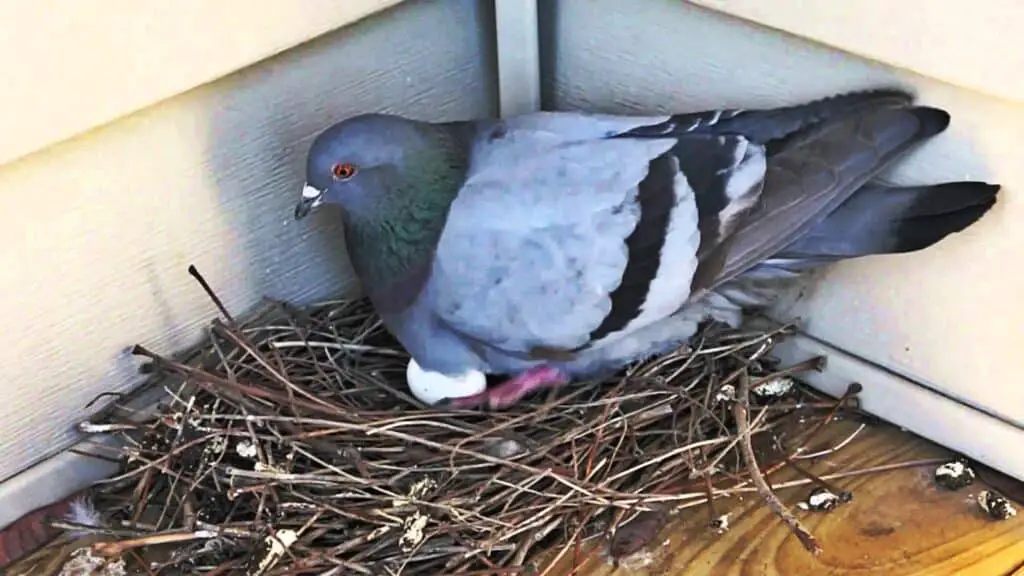
Conclusion
In effective ways to keep pigeons off your porch is not just about property preservation but also about promoting a pigeon harmony coexistence with wildlife. While pigeons may have their own place in the ecosystem, sharing your porch with them can lead to various inconveniences and health hazards. Through the strategies and methods discussed in this you can strike a balance between preserving your space and respecting the natural world. First and foremost, understanding the reasons why pigeons are attracted to your porch is crucial.
Another valuable approach is the use of attractants away from your porch. By an alternative food source or a more attractive roosting spot elsewhere, you can naturally redirect pigeons’ attention and activities. This method not only benefits you but also the pigeons, as they can find a suitable habitat without conflicting with your space. Pigeons can be frustrating, they are also living creatures deserving of respect and humane treatment. Always adhere to local regulations and ethical considerations when dealing with pigeon problems.
Avoid using harmful chemicals or lethal methods that may harm these birds or other wildlife inadvertently. Keeping pigeons off your porch is a multifaceted endeavor that requires a combination of strategies and a compassionate approach. By implementing the tips and techniques outlined in this you can transform your porch into a pigeon-free haven while maintaining a sense of balance with the natural world. With a little patience and diligence, you can enjoy a clean, pigeon-free porch that enhances the beauty and comfort of your outdoor space.

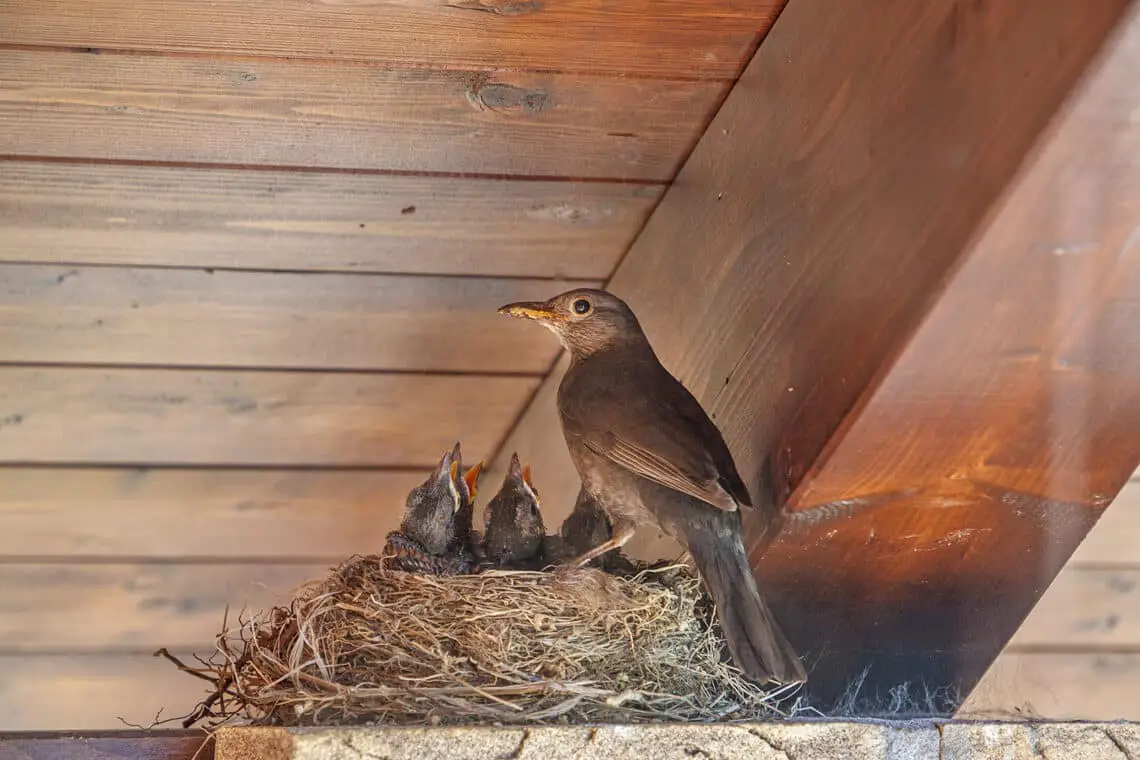
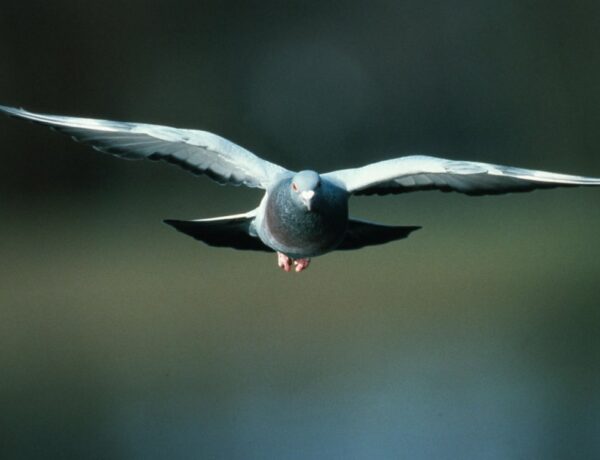
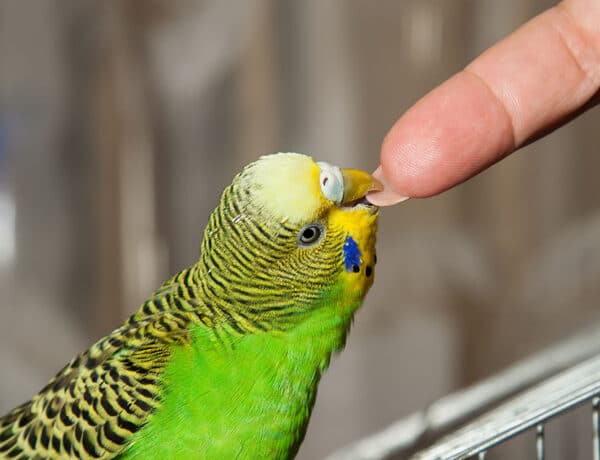
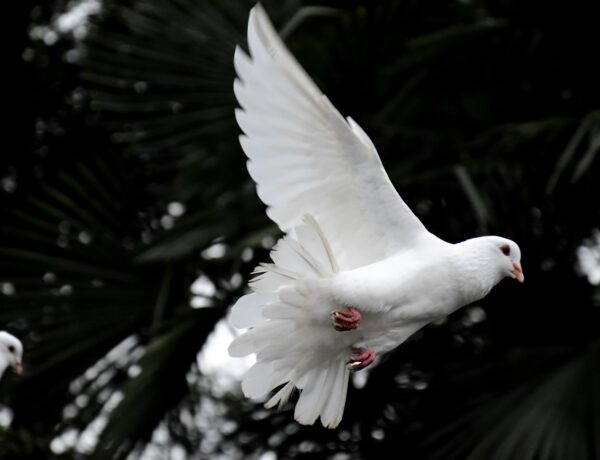
2 Comments
Akun Binance Gratis
April 13, 2024 at 5:17 amI don’t think the title of your article matches the content lol. Just kidding, mainly because I had some doubts after reading the article.
kostenloses binance Konto
July 19, 2024 at 11:14 amThanks for sharing. I read many of your blog posts, cool, your blog is very good.